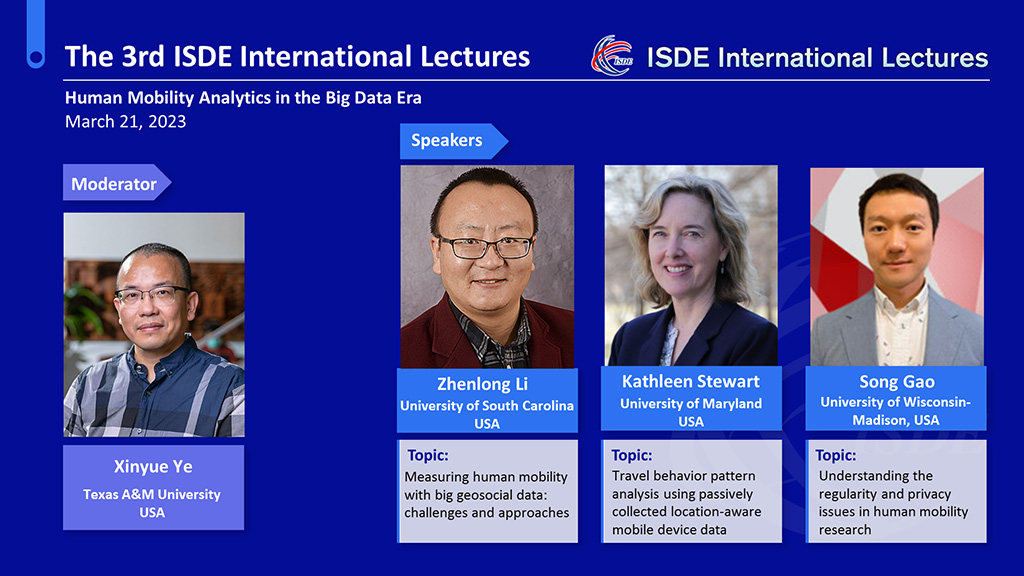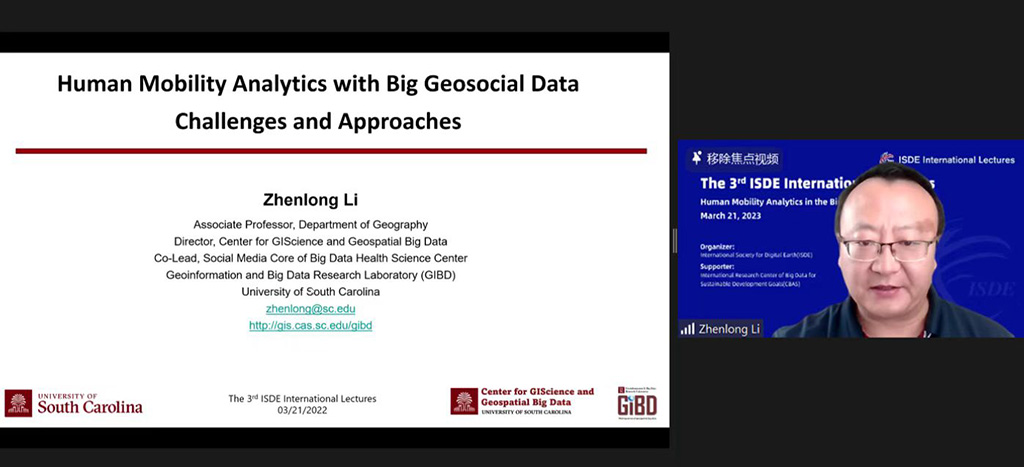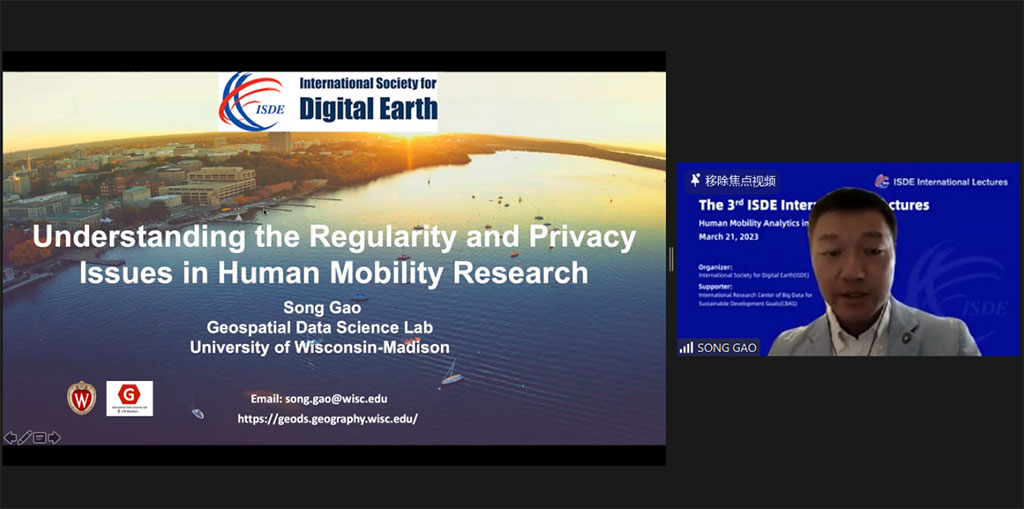On March 21st, 2023, the 3rd ISDE International Lectures was successfully convened online, enlightening the attendees on the theme of “Human Mobility Analytics in the Big Data Era”. Thanks to the multi-channel exposure, this time’s lecture got more eyes on its discernment in the challenges of, approaches to and feasible techniques for the human mobility measurement, the applications of location-aware mobile device data to travel pattern analysis, as well as the ensuring regularity and privacy issues in human mobility research. Three renowned experts from the United States were invited to deliver lectures.

Prof. Zhenlong Li, the Director of the Center for GIScience and Geospatial Big Data at the University of South Carolina, USA illuminated the topic of “Measuring Human Mobility with Big Geosocial Data: Challenges and Approaches”. He, first and foremost, started the lecture with the comparison between a NASA world map with night lights (remote sensing) and a world map with geotagged tweets (social sensing). In the application of geosocial data to human mobility analytics, Prof. Li thought that it was inevitable to encounter challenges including computational challenges, bias or representativeness issues and privacy concerns. To better track and integrate multi-scale human mobility data, the Origin-Destination-Time (ODT) Flow Platform with quite a few application scenarios was brought in, as well as an interactive and visualized spatial web portal ODT Flow Explorer. His lecture ended with the blueprint and prospect of the ODT Flow Platform.

Prof. Kathleen Stewart from University of Maryland, USA gave a lecture on “Travel Behavior Pattern Analysis Using Passively Collected Location-aware Mobile Device Data”. She expatiated on three case studies and the relevant examining methods of their naturalistic driving behaviors. The studies include speeding behavior analysis, driving behavior analysis associated with parking, and travel time estimation. And the data collection and calculation methods in the analysis process were also discussed. She pointed out the great importance of the passively collected location-aware mobile device data, and believed that they brought both opportunities and new challenges, like massive data volume, sampling errors, duplicated waypoints and others. Prof. Stewart insisted that biases, such as technology differences and sample sizes, needed to be considered and analyzed so as to present more reasonable mobility trends and patterns.

Prof. Song Gao from University of Wisconsin-Madison, USA, delivered a lecture on “Understanding the Regularity and Privacy Issues in Human Mobility Research”. His lecture included two parts, one focusing on the regularity research of human mobility patterns, and the other dwelling on the geoprivacy protection methods. By finding out the underlying mechanism of daily human mobility patterns, a network structure was built to sketch out three types of motifs, i.e. location motif, activity motif and routing models. When it came to privacy issues, Prof. Gao introduced the definition of geoprivacy and feasible protection methods. He emphasized the remarkable performance of LSTM-TrajGAN Model and the application of GeoAI approaches to human mobility prediction.

The 3rd ISDE International Lectures was moderated by Prof. Xinyue Ye, Elected Fellow of American Association of Geographers (AAG) with Harold L. Adams Endowed Professorship at Texas A&M University, USA. Over 5,100 participants worldwide attended the event through Zoom, ISDE Bilibili platform and other academic streaming platforms.

The ISDE International Lectures are organized by the International Society for Digital Earth (ISDE) and supported by the International Research Center of Big Data for Sustainable Development Goals (CBAS). It is a series of online events which feature invited lectures by well-known international experts in the field of Digital Earth. The event will invite speakers to give lectures every two months. The purpose of the events is to bring international scholars in the relevant research fields of Digital Earth together to exchange academic perspectives, share research results, and disseminate the most cutting-edge and authoritative concept of Digital Earth.

2004-2026 All Rights Reserved 京ICP备06045536号-1 京公网安备 11010802041631号